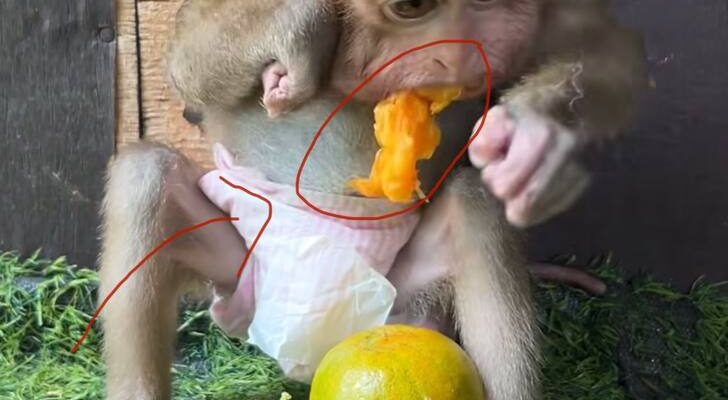Sure! Here’s a unique and informative 500-word article for your website, titled “Gastroenteritis in Monkeys: Causes, Symptoms, and Vomiting Explained”:
Gastroenteritis in Monkeys: Causes, Symptoms, and Vomiting Explained
Gastroenteritis, a common gastrointestinal disorder characterized by inflammation of the stomach and intestines, is not exclusive to humans. In fact, monkeys—especially those in captivity or in close contact with human populations—are highly susceptible to this condition. One of the most noticeable and distressing symptoms of gastroenteritis in monkeys is vomiting, which often signals an underlying infection or dietary issue.
What Is Gastroenteritis?
Gastroenteritis in monkeys is an acute or chronic condition involving irritation or inflammation of the gastrointestinal tract. It is commonly caused by infections (bacterial, viral, or parasitic), foodborne toxins, or sudden dietary changes. While it may resolve on its own in mild cases, untreated gastroenteritis can become life-threatening, especially in young or elderly monkeys.
Causes of Gastroenteritis in Monkeys
The primary causes of gastroenteritis in monkeys include:
- Bacterial Infections
Pathogens such as Salmonella, Escherichia coli, and Campylobacter can enter the monkey’s system through contaminated water, unwashed fruits, or spoiled food. These bacteria cause inflammation that leads to vomiting and diarrhea. - Viral Infections
Viruses such as rotavirus or norovirus can infect monkeys, particularly in environments where animals live in close quarters. These viral infections are highly contagious and can spread rapidly in a group. - Parasitic Infestations
Parasites like Giardia and Entamoeba histolytica can lead to prolonged gastrointestinal distress, including vomiting, cramping, and malnutrition. - Poor Diet or Sudden Diet Change
Feeding monkeys foods that are too rich, spoiled, or inappropriate (like processed human snacks) can irritate their digestive systems. Sudden changes in diet can also trigger gastrointestinal upset. - Stress and Environmental Factors
Captive monkeys experiencing stress due to habitat changes, handling, or overcrowding may develop stress-induced gastroenteritis.
Why Vomiting Happens
Vomiting is the body’s natural response to irritation or toxins in the stomach. In monkeys, vomiting due to gastroenteritis helps expel harmful substances, but it also leads to dehydration and electrolyte imbalance. Repeated vomiting should never be ignored, as it can indicate a worsening infection or the presence of a blockage or ulcer.
Signs and Symptoms
In addition to vomiting, monkeys with gastroenteritis may exhibit:
- Diarrhea (often watery or bloody)
- Lethargy and weakness
- Loss of appetite
- Abdominal bloating or cramping
- Dehydration (sunken eyes, dry mouth)
Caregivers or researchers must act quickly when these symptoms appear, especially in settings like zoos or sanctuaries.
Treatment and Prevention
Treatment typically includes rehydration, electrolyte replacement, and administration of antibiotics or antiparasitic medications, depending on the cause. In some cases, antiemetics may be used to control vomiting.
Preventive measures include:
- Providing clean, fresh water
- Maintaining a balanced, appropriate diet
- Regular veterinary checkups
- Quarantine of new or sick animals
- Maintaining hygiene in living enclosures
Final Thoughts
Vomiting in monkeys should never be taken lightly. As a key symptom of gastroenteritis, it signals an underlying issue that requires prompt medical attention. Early diagnosis, good hygiene, and proper nutrition are crucial to ensuring the health and well-being of monkey populations in both captive and wild environments.
Let me know if you’d like a version optimized for SEO or adapted to a specific audience like veterinarians, zookeepers, or researchers.



